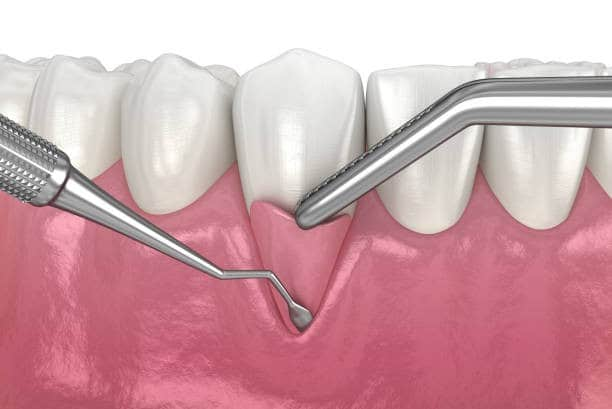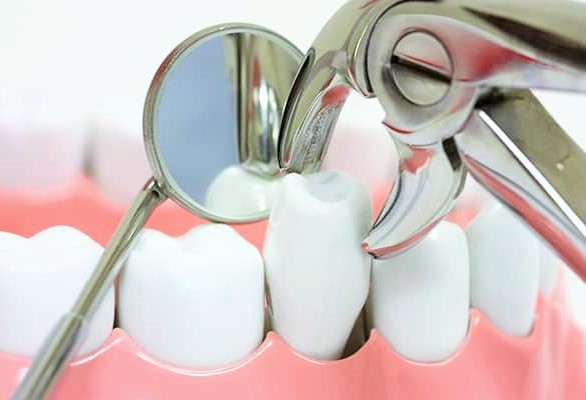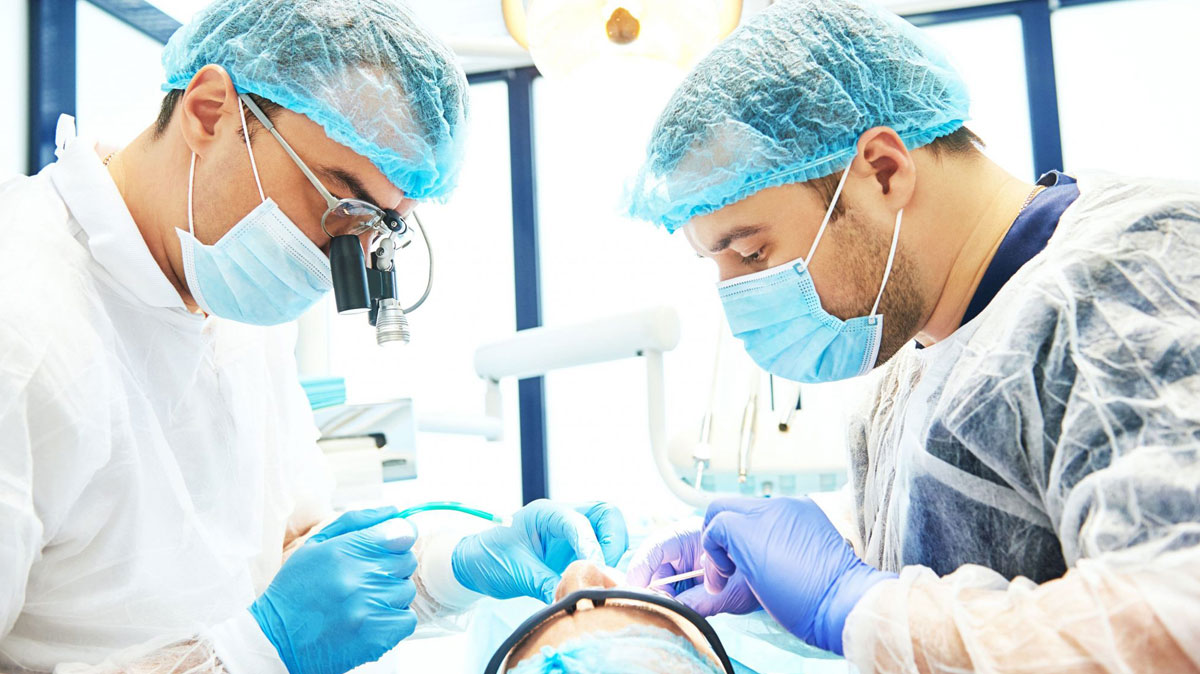Dental Surgery, Dental surgery is considered one of the most important fields that many doctors have been interested in and have worked to develop over time, in order to achieve the best guaranteed results that the patient desires using the latest technologies in performing it. In this article, we will discuss dental surgery in detail, how to perform it, how to choose the best surgeon, and we will recommend one of the best centers in Egypt for dental surgery.

Dental Surgery
Dental Surgery
Dental surgery is one of the most important cosmetic therapeutic methods that the doctor uses in order to obtain a good shape and appearance for the teeth, using many modern techniques. It is used in cases of broken or cracked teeth or in cases of impacted wisdom teeth. The procedure takes from two to three hours, and in the following paragraphs, we will discuss in more detail how to perform dental surgery, especially in the case of children and pregnant women, and we will present some details about jaw surgery.
“Healthy teeth and a charming smile! Visit us today and let us help you get rid of the pain of impacted wisdom teeth with the best therapeutic methods.”
What is Dental Surgery?
Dental Surgery: It is a procedure that the doctor uses to remove some teeth that cannot be treated with fillings, or in case they were impacted within the gum or exposed to breakage or deformities, and it differs from traditional tooth extraction in that the surgical procedure involves anesthetizing the patient with intravenous or local anesthesia and in some cases using general anesthesia.
There are several other procedures that make the surgical procedure different from the traditional one:
- Gum incision: In this procedure, a small part of the gum is cut to expose the tooth bones or impacted wisdom teeth underneath.
- Bone cutting: In this procedure, the doctor cuts a part of the bone to provide a larger space to see the teeth under the gum.
- Tooth sectioning: There are some cases where the doctor cannot remove the entire tooth, so he resorts to cutting it into small pieces to facilitate the removal process.
How to Prepare for Dental Surgery?
Before performing dental surgery, there are some preparatory steps that the doctor and the patient take, including:
- During the first visit, the doctor examines and diagnoses the condition of the teeth, determines the type of problem and method of treatment, and develops a treatment plan for it.
- The patient undergoes some tests on the teeth, such as X-rays, to confirm the problem with the teeth and identify it more accurately.
- The patient must inform the doctor if they are suffering from chronic diseases such as diabetes, liver, kidney, or high blood pressure, or if they have undergone artificial joint replacement surgery.
- Before the procedure, the doctor may prescribe some antibiotics in case the patient is suffering from a weakened immune system or if the doctor expects the procedure to take a long time.
- The patient must refrain from smoking before the surgery for an extended period.
- The patient must wear loose clothing to facilitate removing or lifting it in case of intravenous anesthesia.
- The patient must fast before the surgery and not consume any food or beverages for at least 8 hours. For more information about the tools used in surgery, read the next article.
Reasons for Dental Surgery
There are several reasons why a patient may suffer, requiring the doctor to perform dental surgery instead of other procedures. These reasons include:
- In case of deep breakage or cracking of the teeth.
- In case the patient has deformed tooth roots, such as long or curved roots.
- There are some cases where the teeth are impacted due to incomplete growth, which often occurs in wisdom teeth.
- The doctor uses it to remove the root tip and clean the root and tissues inside it from infections that affect the inner end of the tooth root.
- In case of lack of flexibility in the bone tissue around the teeth.

Reasons for Dental Surgery
Jaw Surgery
Jaw surgery: It is one of the procedures that the doctor performs to improve the shape and appearance of the jaw. It is used in cases where the jaw is not proportional to the patient’s face or if there are bone deformities, or if there are bone deformities in the temporomandibular joint, causing speech problems and difficulty in chewing food. Jaw surgery may be performed in cases of defects resulting from tumor removal or an accident causing bone fractures.
How is jaw surgery performed?
- An appointment is scheduled with the surgeon to examine and diagnose the jaw and develop a treatment plan for the patient. During the visit, the doctor asks the patient if they are suffering from any chronic diseases that may affect the surgery.
- Performing some tests such as X-rays and CT scans to confirm the patient’s problem more accurately.
- Refraining from smoking or consuming alcoholic beverages before the surgery for an extended period.
- The patient must refrain from consuming food and beverages for at least 8 hours before the surgery.
- The doctor administers general anesthesia to the patient during the surgery.
- After that, the doctor cuts some parts under the jaw or near the temporomandibular joint, and this is done after thorough and deep cleaning of the wound area.
- In case the patient needs to reshape the chin, the doctor removes some of the fatty tissues under the skin.
- In some cases, it may be necessary to remove or implant a part of the bone or tissues under the jaw.
- After the surgery is completed, the doctor sutures the wound and applies compression dressing.
- The doctor leaves some tubes to drain fluids and blood from the tissues.
- The procedure may take two to three hours, depending on the patient’s condition and problem.
- The patient remains in the hospital under observation for 24 hours to ensure their condition is stable.
- The patient should avoid using facial muscles by talking or bending, especially during the first week after the surgery.
- The stitches are removed within 10 days after the surgery, and during that period, the patient takes medications regularly to help the wound heal faster.
“Do you feel pain in your jaw? Don’t delay treatment; we are here to help you at The Dental Center

Jaw Surgery
Impacted Tooth Surgery
Surgery for impacted teeth: It is a procedure performed when the wisdom teeth do not grow in their natural position and remain under the gum. There are several different types of impacted tooth surgery:
- Soft tissue impaction: In this case, the wisdom tooth is impacted directly under the gum, so the doctor makes an incision in the gum and extracts the tooth using traditional methods, and then sutures it.
- Bone tissue impaction: In this case, the wisdom tooth is covered with bone tissue and another soft tissue, so the doctor makes an incision in the gum and removes these tissues, leaving the tooth as is and then sutures the gum again.
- Complete bone impaction: This is the most difficult and complex type because the wisdom tooth is completely impacted within the jaw bones. The doctor makes an incision in the gum to expose the bones and remove the bone parts around it, then cuts the tooth into pieces to facilitate its extraction.
Dental Surgery for Pregnant Women
The hormonal changes in pregnant women cause many problems, including weakening of the gums and teeth. Therefore, regular follow-up with the doctor is necessary to ensure there is no problem. However, sometimes the doctor may need to subject a pregnant woman to dental surgery. Therefore, there are some things that the doctor pays attention to before the surgery, including:
- The pregnancy must have reached at least the third month.
- Using local anesthesia, not intravenous or general anesthesia.
- The doctor may use some sedatives that do not harm the pregnancy.
Despite this, many doctors prefer to perform such surgery after childbirth.
There are several reasons that may prompt the doctor to surgically extract a child’s tooth, including:
- Deep cavities in the child’s teeth due to consuming many sweets and unhealthy foods, and not taking care of their dental hygiene.
- The child develops an infection due to the mother’s lack of attention in treating cavities, which allows it to reach the tooth roots.
- The child’s teeth are exposed to an accident or injury, causing breakage and fracture.
How to Choose a Suitable Dental Surgeon?
There are several specifications that a surgeon must possess when choosing them, including:
- The surgeon must have academic degrees in dentistry and an international fellowship in dental surgery.
- Be aware of the success rate of the dental surgeries they have performed and the number of successful operations they have completed.
- Have the ability to perform any surgical procedure related to teeth and jaws.
- A high rate of patient ratings, which must be reviewed.
- The ability to communicate well and quickly with their patients.
 How to Choose a Suitable Dental Surgeon[/caption ]
How to Choose a Suitable Dental Surgeon[/caption ]
Is Dental Surgery Dangerous?
No; but like any procedure, it may have some complications such as:
- Feeling severe pain, so the doctor will prescribe painkillers.
- Inflammation or swelling in the cheek may occur, which can be reduced with antibiotics prescribed by the doctor.
Is Dental Surgery Painful?
Yes; the patient will feel some pain during opening the mouth and administering the anesthetic injections, which prevent them from feeling anything during the procedure. However, they will gradually feel severe pain once the anesthetic wears off, so the doctor will prescribe painkillers to alleviate the pain until it subsides completely.
After Dental Surgery
After dental surgery, there are several things that must be noted during the wound healing period, including:
- Regularly taking the medications prescribed by the doctor, especially antibiotics.
- Apply pressure to the wound using a sterile gauze for 30 minutes per day.
- In some cases, bleeding may occur, but it will usually stop within 6 to 24 hours. If it persists, consult the doctor.
- Feeling pain once the anesthetic effect wears off, so it is preferable to take painkillers before the effect wears off to avoid pain. It is not recommended to use aspirin and its derivatives as painkillers because they may increase bleeding.
- Swelling may occur in the surgical area.
- Do not consume any food immediately after the surgery for at least 24 hours.
- Refrain from smoking and alcoholic beverages during this period.
- Do not touch the wound area with your hand or tongue to avoid pain or bleeding.
How to Remove Dental Surgery Stitches
After the wound has healed, the surgical stitches must be removed by the surgeon, who will examine the wound healing and detect any existing problems such as inflammation or infection. During this section, we will discuss how to remove the stitches in dental surgery:
- The doctor’s assistant prepares the tools used for removing the stitches, such as scissors, forceps, dressing, and cotton.
- Sterilize all medical tools with boiling water and clean them thoroughly, and use medical alcohol to wipe them accurately.
- Sterilize the wound area with hot water, and apply medical alcohol to a cotton pad to sterilize the wound.
- After that, the doctor gently pulls the end of the knot with the forceps, then inserts the scissors into the knot to cut the stitch and then pulls it until it comes out. You may feel slight pressure, but it is generally accepted that removing stitches does not cause any pain.
- The doctor cleans and sterilizes the area where the stitch was removed, then applies a topical antibiotic. You can learn about the best innovative stitches in our next article.
The doctor uses stitches to close the incision made in the gum, but it is impossible to specify a specific time for removing the stitches, as it depends on the type of wound and the type of stitches used, including:
- Dissolvable or absorbable stitches: These dissolve automatically in the dental tissues within approximately 60 days and do not require a doctor to remove them.
- Non-dissolvable stitches: These maintain their strength and durability for up to 90 days, and are only removed once the wound has healed, by the doctor.
Best Medical Centers for Dental Treatment and Aesthetics
The Dental Center is considered one of the best current centers in Egypt for dental treatment and aesthetics. It has a team of dentists who hold various certificates in the field of cosmetic and therapeutic dentistry. They possess expertise and skills in using the latest medical technologies
"Professional Dentist at the Dental Care Medical Center
Welcome to the Dental Care Medical Center, where we offer a full range of preventive, therapeutic, and cosmetic dental services. We have a team of the best dentists in Egypt, who have extensive experience in all areas of dentistry.
Extens ... read more
We are always happy to answer your inquiries



 How to Choose a Suitable Dental Surgeon[/caption ]
How to Choose a Suitable Dental Surgeon[/caption ]